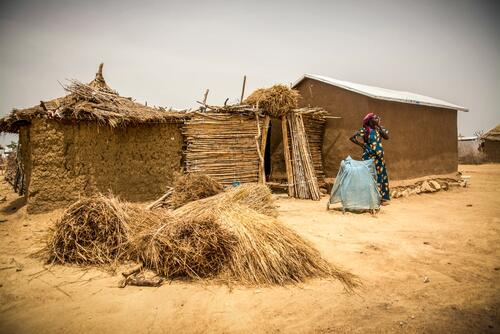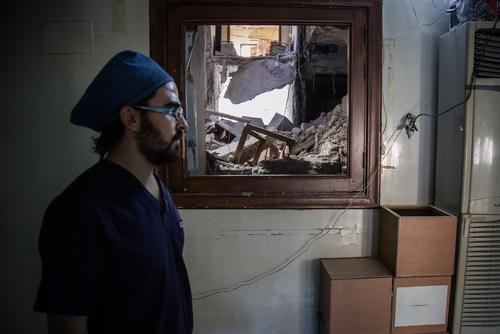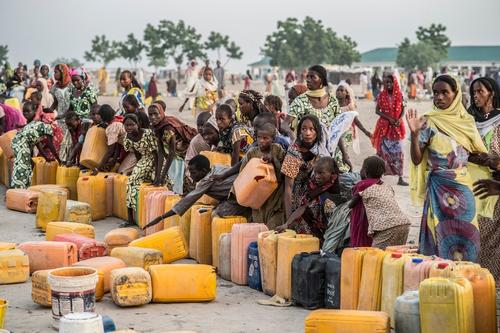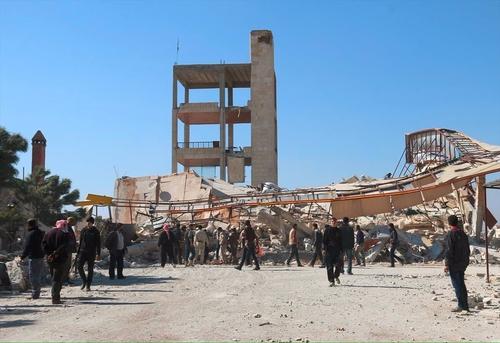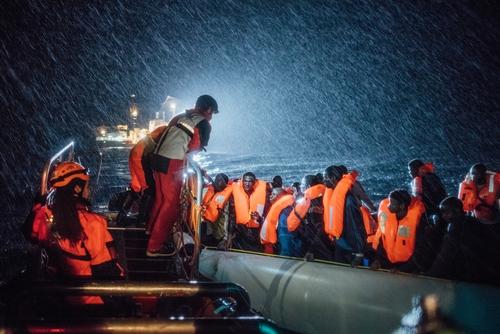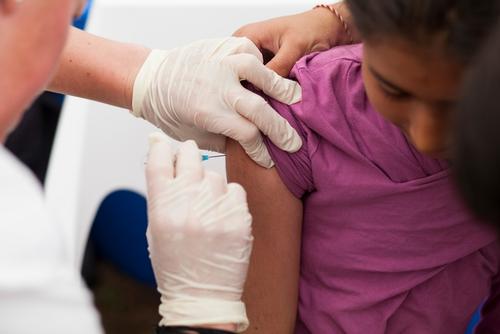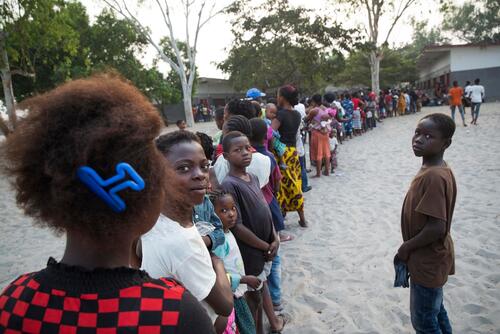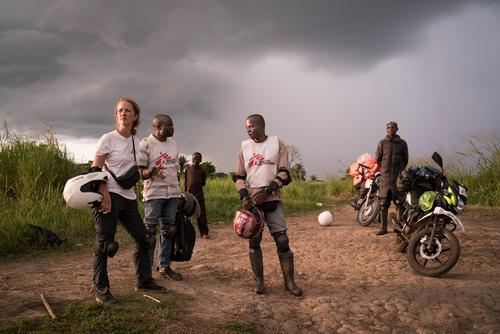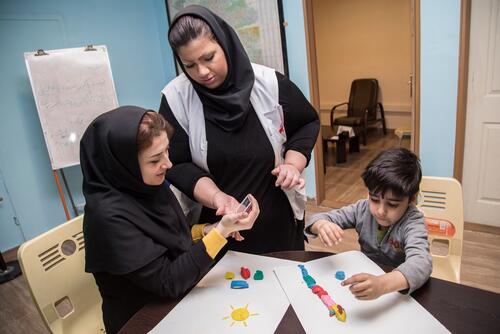
133,300
133,3
11,700
11,7
Since 2011, violent attacks by Boko Haram and the counterinsurgency operations of the Nigerian army have forced hundreds of thousands of people from northeast Nigeria to seek refuge in Cameroon, Chad and Niger. During the past two years, violence has increasingly spread from Nigeria into the three neighbouring countries, causing further displacement. By the end of the year, there were around 86,000 refugees and 198,000 internally displaced people in Cameroon.
In response, MSF scaled up its activities in several locations in the north of the country, providing healthcare, including maternal services and nutritional support, in the UNHCR-administered Minawao camp. MSF staff carried out 58’147 consultations during the year. They also improved water and sanitation, trucking in 3000 cubic metres of water per week and assisting with the construction of 32 kilometers pipes to find a permanent solution to the scarcity of water in the camp.
In Mora town, near the Nigerian border, MSF offered specialised nutritional and paediatric care at the hospital and supported two health centres serving displaced people and local residents. The team also ran an ambulance service and started surgical activities in response to a large influx of wounded patients; 246 patients were treated following violent attacks in 2016.
MSF has completely renovated the operating theatre and post-surgical ward at Maroua hospital. Between August and December, the team carried out 737 surgical interventions in the hospital.
In Kousseri, on the Chadian border, MSF supported the surgical ward at the district hospital, performing caesarean sections and emergency interventions. MSF staff also provided nutritional and paediatric care at the hospital and outpatient consultations in three health centres on the outskirts of the city.
In addition, MSF trained Ministry of Health staff in the management of large influxes of wounded patients.
MSF had been running an inpatient therapeutic feeding centre and the paediatrics department at Mokolo hospital, but handed over these activities to the NGO Alima in May.
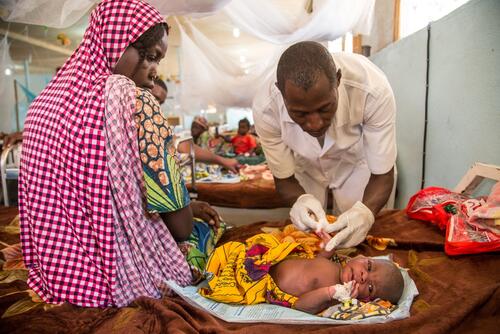
Closure of projects assisting refugees from Central African Republic (CAR)
Since 2014, MSF has been supporting the Ministry of Public Health by providing medical, nutritional and psychological support to refugees from the conflict in neighbouring CAR, as well as host communities, in several locations. As the situation stabilised, MSF gradually handed over its activities to other organisations. In June, MSF handed over its last project at the district hospital in Batouri to International Medical Corps. Teams in Batouri had supported the local health authorities in the management of patients with severe complicated malnutrition, the majority of whom were children under five. Since the 90-bed therapeutic feeding centre opened in March 2014, 2’853 children had been treated.



